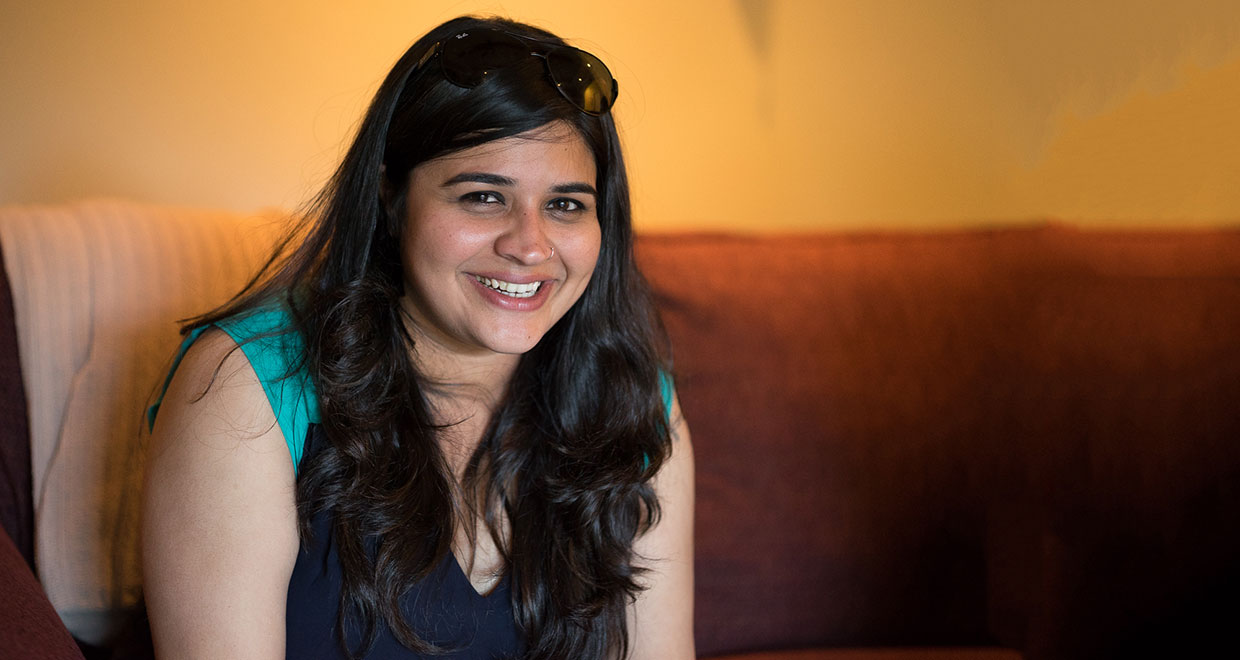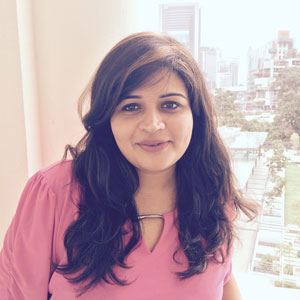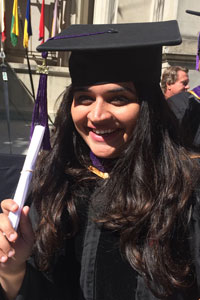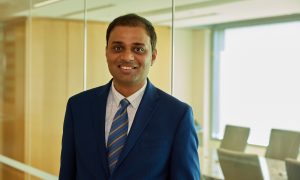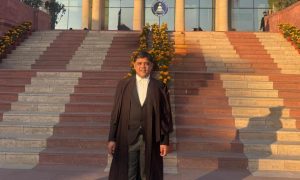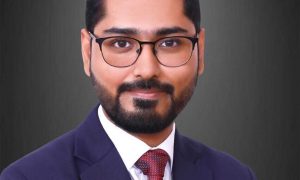Smrithi Ramesh graduated from The Tamil Nadu Dr. Ambedkar Law University, Chennai and thereafter went on to pursue an LL.M in Alternate Dispute Resolutions from the University of California, Berkeley. Currently with her assorted skills in arbitration, mediation and negotiations she has joined the Kuala Lumpur Regional Centre for Arbitration.
She shares with us:
- Her reasons behind pursuing LL.M
- Faculty, facilities and course structure at Berkeley
- Building a career in Alternate Dispute Resolutions
- Overall journey as a law student and post-law-school career
What impressed upon you the idea to study law? Did you have lawyers among your relatives?
I consider myself a first generation lawyer. Growing up, no one in my immediate family practiced law. However, I did grow up listening to stories about my great grand-father being a lawyer and that had an amazing impact on me. A healthy dose of books like To Kill A Mocking Bird and John Grisham only cemented that desire. All my varied extra curricular activities in school also revolved around my fondness for interpersonal interaction, rationalization and in advocating my beliefs to people. Hence, choosing to study law was a logical consequence of my upbringing.
Once I started law school, while my reasons to love the law became different and more coherent, the desire to become a lawyer stayed the same.
How do you recall your law school journey? Did you partake in moots and extra-curricular activities?
Law school was more of an adventure than a journey. I studied in the School of Excellence in Law and hence access to Courts and work on an everyday basis was a huge advantage. The timing of my college made it conducive for me to intern every day for the 5 years. Luckily for me I joined this leading law firm in Chennai called BFS Legal. The Partners were very encouraging and made sure that I was exposed to all kinds of work. It was lucky for me that I found mentors in my bosses who not only taught me the law but also channelized my interests in the right direction. Being avid mooters themselves, they encouraged me to take part in moots. There began a long relationship between me and mooting. I spent 5 years during various moots.
Extra curricular activities were a huge part of what moulded my personality.
A big turning point in all this was when my team won the Henry Durant Memorial Moot Court Competition. We went on to win the Asian Rounds in Bangladesh and then were placed Semi-Finalists in the International Rounds. This was a first for my institution and for us personally too. The exposure we got there meeting students and lawyers all over the world was phenomenal and that also prompted us to do the Willem C Vis Arbitration Moot. It was her that I first developed my interest towards International Arbitration.
Apart from this, I was also a part of the Moot Court Association of my college. In the final year of college I was made President of the Moot Court Association. I was part of the team that successfully conducted four National Moot Court competitions in one year. We managed to pull off a successful event on a shoestring budget. I believe these experiences were crucial in learning valuable skills that continue to help me everyday at work and outside. In the final year, I also interned with the Ministry of Corporate Affairs.
How did your appointment at Vichar Partners (now JSA) take place? What all constituted your work profile?
Vichar Partners was one of the few firms in Chennai that was doing great transactional work. Towards the end of law school, I had begun to take a great interest in Arbitration and also Transactional Law. I applied to Vichar and went through the interview process successfully. My work profile primarily consisted of handling Dispute Resolution cases including Arbitration. I was also able to work on a few deals and was also a part of the team that conducted due diligence. VICHAR partners gave me hands on learning on the various aspects of Corporate Law. They also had a lot of cases relating to arbitration and electricity law. It was very interesting for me to work on this as it was new and challenging. Although I was no stranger to courts, it was here that for the first time I got to represent in various forums including the High Courts, Electricity Tribunal etc. None of the books you read or lawyers you watch prepares you for the sheer thrill you get when you appear before a bench in real life.
After your work experience at Vichar you joined Mundkur Law Partners. What prompted you to make this shift?
The shift was primarily owing to my relocation to Bangalore for personal reasons. However, once I joined Mundkur Law Partners, it was almost like a second tenure at law school. All my working life, I have been blessed with amazing bosses and Mr. Mundkur was no exception. My stint at MLP saw my drafting and research skills undergo a sea change. High standards of perfection was the norm at MLP. My exposure at MLP included Corporate Law, Dispute Resolution, Education and Foreign Investment.
By now I had more or less understood the importance of an LL.M to bolster my CV and help me carve out a niche.
What was your motivation behind pursuing LL.M.? When did you finally decide that you need to do masters?
I was first considering doing a Masters immediately after my experience with mooting at an International forum. It made me realize the importance of learning in a multi cultural environment. By the time I was in MLP, I had pretty much decided that to really equip myself, with the skills and knowledge required to further my career, an LL.M was mandatory. It was also essential for me to understand and learn for myself how the different spheres of law worked and functioned.
How did you choose the university/college? How should one go about choosing a university?
A lot of research went into the schools I had decided to apply to. The one key thing while choosing an LL.M. is to look at it for the point of view of equipping oneself rather than finding a job out of the country. It is good to do some background research on the faculty and programs offered in your area of interest. I was interested in New Venture Law, Investment and Arbitration. To me California and Berkeley were a perfect fit. I was taught by the best lawyers in Silicon Valley and the arbitration faculty at Berkeley was also great.
I was very keen on a multi-cultural university. The key thing to identify for yourself before applying for an LL.M is to decide what exactly one wants out of the program. Once those goals are established, applying to schools becomes easy.
Does Berkeley provide students with scholarships? Are there other institutions which provide scholarships? How difficult was studying abroad in terms of finding accommodation, finances and settling in?
Berkeley does provide some scholarships. There are also many institutions that provide scholarship both inside and outside of India. People looking to apply for an LL.M should get their research in order as regards scholarship applications. Most times, there is a separate procedure for applying for these scholarships including writing essays. The deadlines for scholarships also vary. So it is good to have a schedule before one even starts to apply to colleges.
For anyone going from India, living in the USA is an expensive proposition. More so, if it is California or New York. The cost of real estate is fairly high. However thanks to social networking, it is easy to connect with former students and your own future classmates. It’s good to take their advice regarding places to stay, when to look for places etc. Settling in is not just easy but also fun. You make so many wonderful friends from all over the world that the entire process becomes such a joy. The only key here is to go with the flow.
Did you undergo a rigorous academic schedule? How was that different from your under-graduate course?
My academic schedule was radically different from what I was used to in my under graduate course. My under graduate course was more flexible and most of my learning came from actually working. However, at Berkeley the academic schedule is pretty rigorous with some courses having continuous assessment. One is expected to be prepared with the readings before one heads to class. To me the most important thing that stood out was how much importance was given to practical application of concepts. For people who are used to the Indian method of examination, it’s quite a challenge to adapt to the new system. I was never before exposed to the concepts of open book examinations etc. However by the second semester, it became standard practice. The exams and the learning train you to think about application than mere learning by rote.
Prof. Alexander Coward’s mail inspired thousands of students all over the world. How was your experience with faculty?
Prof. Alexander Coward’s mail is a wonderful example how Berkeley gives you the freedom to be what you want to be, whether you are a student or a faculty. The faculty is extremely intelligent and it was a sheer delight to be a part of some classes which was interactive and stimulating. Most of the faculty members are also versatile and have a great experience. For eg, my New Venture Finance class was taught by a doyen in the Silicon Valley. Listening to his personal insights just made the class more interesting, relatable and real.
How is the faculty & academic schedule (your typical day) over at Berkeley? Is there time enough for non-academic pursuits?
The academic schedule primarily depends on the courses you elect to opt at the beginning of the semester. Some people had classes spread out over a week and for some it was clustered on a few days. Very early on you quickly learn to compromise on sleep for the one year that you are there. This leaves you with enough and more time for non-academic pursuits.
The classes offered also provide for great variety. I also had the opportunity to audit a few classes in the South Asian Studies Department as I was very interested in those subjects. This gave me the opportunity to meet and interact with stalwarts such as Asma Jehangir, Gurcharan Das, Ramachandra Guha etc. I took a class called Negotiations ( on Saturdays) and this was literally the best decision of my life. I also managed to take a class from the HAAS , the B school at Berkeley called Power and Politics in Organizations. These classes are meant to develop your skills. To say that they changed my life would be an under-statement. There are so many skills that you pick up that aid you in my day to day work as a lawyer. For eg, in Negotiations class, our final grade mostly constituted of a simulated negotiation that was recorded. This helped us analyze and dissect every aspect of the negotiation including body language, effectiveness of skills, strengths and weaknesses of the negotiation tactic etc.
On the other hand, Berkeley is literally the epitome of fun. Non-academic pursuits are just as integral as academic pursuits. I can safely say that I spent equal amounts of time if not more just having fun and trying or doing the things I loved.
How did you go about your journey of job-hunting after graduation? How did Kuala Lumpur Regional Centre for Arbitration happen?
My job hunting process began as early as January. By then, I had decided to focus my entire energy on finding a job in Arbitration or Negotiations. I was warned very early on that to get a break in the field of International Arbitration is nearly impossible. I spoke to a friend and mentor, Abhinav Bhushan who is with the ICC, Paris. His insights and experiences proved extremely useful as it was he who directed me to the possibility of applying to International Institutions. I learnt from his experiences and difficulties faced when applying. I took his advice to heart and set out to write to Institutions from the very beginning of January.
I was forewarned about the multiple rejections that come your way. Persistence is the key to job hunting in a market like this. It is also important that while making these contacts, you make an effort to stay in touch with them even if they cannot at that moment give you a job.The job hunting process was in itself a learning experience.
What does your work profile as a Case Counsel at KLRCA consist of?
The Kuala Lumpur Regional Centre for Arbitration (KLRCA) was established in 1978 under the auspices of the Asian-African Legal Consultative Organisation (AALCO).
My job at KLRCA primarily consists of case management. This involves from the commencement of an arbitration until the Award is rendered. As an International Case Counsel, I am in charge of monitoring every stage of the proceedings assuring that every step complies with the procedural rules that parties have agreed on. The cases varies in nature of the dispute, type of arbitration and whether it is an international or domestic arbitration. Case management involves many stages of the dispute resolution process, not only arbitration but mediation and recently adjudication as well.
Apart from this, KLRCA offers Case Counsels the opportunity to lead and be involved in developmental projects both in Malaysia and in the International arena. Developmentally, KLRCA is a young Arbitration Centre. As such there is much room to be creative and come up with proposals to improve our services in arbitration and as a dispute resolution service provider generally. Since the appointment of the current Director, Professor Datuk Sundra Rajoo, KLRCA has increased the number of Cases drastically and has revamped itself as a complete ADR solution provider. KLRCA’s other ongoing projects are in diverse fields including Sports, Medico-Legal, Investment Arbitration, Domain Name Dispute Resolution amongst others. This proves to be not just challenging but also an extraordinary learning experience.
When did you realise your calling for Arbitration? What would you advice budding arbitration enthusiasts?
Arbitration is much of a keen interest. It was also not a sudden realization but that something that happened over time. The decision was made easier as I had previously the opportunity to experience various fields of law. From the time I was an intern, I worked on Litigation, Corporate and Transactional Law. Experiencing this first hand made it easier for me to narrow down on what interested me the most. Berkeley and my experience with studying Arbitration was the culminating point of an interest that grew gradually. I strongly believe that the Law is one field which is constantly adapting. After Berkeley and KLRCA, I realized the importance of not just arbitration, but also the necessity to focus on Alternate Dispute Resolution as a field in itself.
As advice, I would pretty much say the same thing to budding Arbitration enthusiats. It makes the world of a difference when you keep an open mind. I would also suggest that you keep yourself update on the constant developments in the field of Arbitration. Speaking to people who are in the field is a definite advantage and necessary even.
How do you think your LL.M has benefitted you in your career prospects?
My LL.M at Berkeley not only equipped me with the knowledge and skills required for a career in Alternate Dispute Resolution, but also opened my mind to avenues I did not know existed before. The Berkeley tag is a definite advantage and a welcome addition to my resume. The contacts that I made in Berkeley break across territories and has already come in handy in my career. I think an LL.M is essential for anyone interested in the field of International Arbitration and this was no different in my case too.
More importantly, it has given me fresh perspective on everything including the law.
What would be your parting message to our readers?
While it is important to plan ahead and work towards a career of your choice, it is just as important to experience every moment of it. The people around you change you and teach you just as much as the curriculum does. It can be very easy to get caught up in this and forget the real reason behind why one chose the law. I am no one to give advice. However, everytime I find that the process overwhelms me, I remember what Atticus ( Finch) says in the book:
“Delete the adjectives and you will have the facts.”
It’s that simple.

